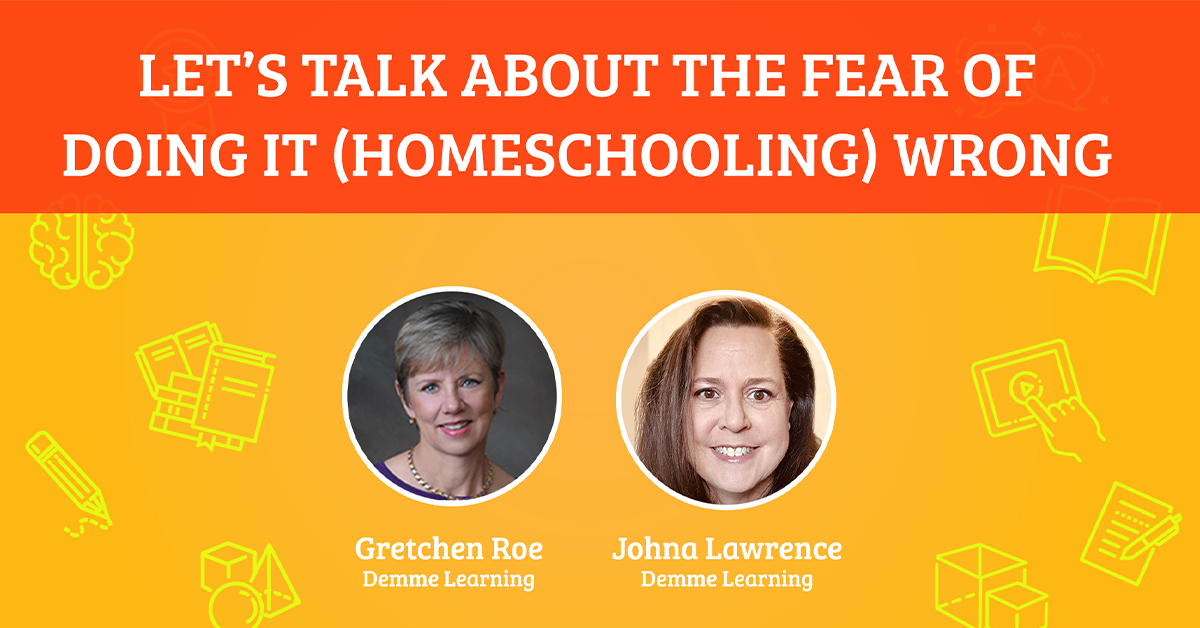There is so much joy in watching a child develop a love of reading. What do you do when you don’t see that happening in your household? What can a parent do to move their children successfully into the reading journey? And how can using a spelling program improve both spelling AND reading? Gain practical problem-solving tips for reading and spelling, and enjoy this informative discussion.
Find out where you can subscribe to The Demme Learning Show on our show page.
Show Notes
Bear these things in mind:
- Find the holes and begin instruction there: what key elements are they missing?
- Build their confidence: give them things that they can easily read and point out what they do well.
- Don’t leave them guessing: teach them exactly what to do and how to do it. If YOU read the passage TO them first and then ask them to read it, they have a much higher chance of success and understanding.
- Model the strategies: read out loud, slow down, ask questions.
- Give them time to practice with your help: give them the skills that they need to bridge the gap.
- Make it multisensory: visual, kinesthetic, and auditory activities.
- Make sure you rule out vision as a mitigating factor. Make note if you observe the following:
- Tilting their head while reading
- Difficulty with copywork
- Omitting small words when reading
- Unsuccessfully reading from line one to line two without realizing they skipped a line
- Messy handwriting with differently sized letters
- Diminishing attention span as work progresses
If you see those signs, find a developmental optician who can rule out a binocular vision problem.
3 Important Skills Needed for Reading
- Rhyming Words: children should be able to recognize when words rhyme and when they don’t, produce rhyming words, and play with rhyming words.
- Syllables: children should be able to count the number of syllables in a word, combine syllables, and say the parts of a word when a syllable is dropped (say rainbow without rain)
- Phonemes: children should be able to isolate phonemes (what is the first sound that you hear when I say bear?), blend phonemes (tell me what word this is: /m/ /ee/ = me), and separate phonemes (what sounds do you hear in the word bug?).
4 Reading Strategies
- Use a finger or a card underneath the words to help your eyes “track” and focus on each word and letter you are sounding out.
- Helping a child to see the patterns in words will improve their reading fluency.
- When you get to a word that you don’t know how to read, identify the vowel first, then sound out the word from beginning to end.
- Look up the meaning of new words. If you know the meaning, you are more likely to remember it and decode it. After you decode the word, practice writing it and using it in a sentence. Other areas are affected by a struggling reader:
- Children who struggle with reading may also have a difficult time with organization and spoken directions. Checklists are a great tool to help them process one step at a time.
- Struggling readers are often easily distracted. Avoid too many stimuli. Reading is an intense activity for some and requires them to create their own stimuli. It helps to increase brainwaves to match up with the task at hand. They may need to wiggle, move about, or tap their fingers. Allow them the freedom to do that. It helps their concentration for the task instead of hindering it.
Above all, remember you need to be the best observer of your student. They will provide you clues—pay attention to what is happening, and remember, no child is lazy. There is a reason for their pushback, and it will be up to you as the parent to discover it.
Upcoming WebinarsWe Are Here to Help
If you have any questions, you can contact us at the link below.
Get in Touch



Thank you for such a helpful and well organized program. I am encouraged to know I’m not alone and how I can help my students better.
Thank you
Amber
This webinar was so helpful and encouraging! I am going to see about vision therapy for my almost 9 year old son. Thank you!